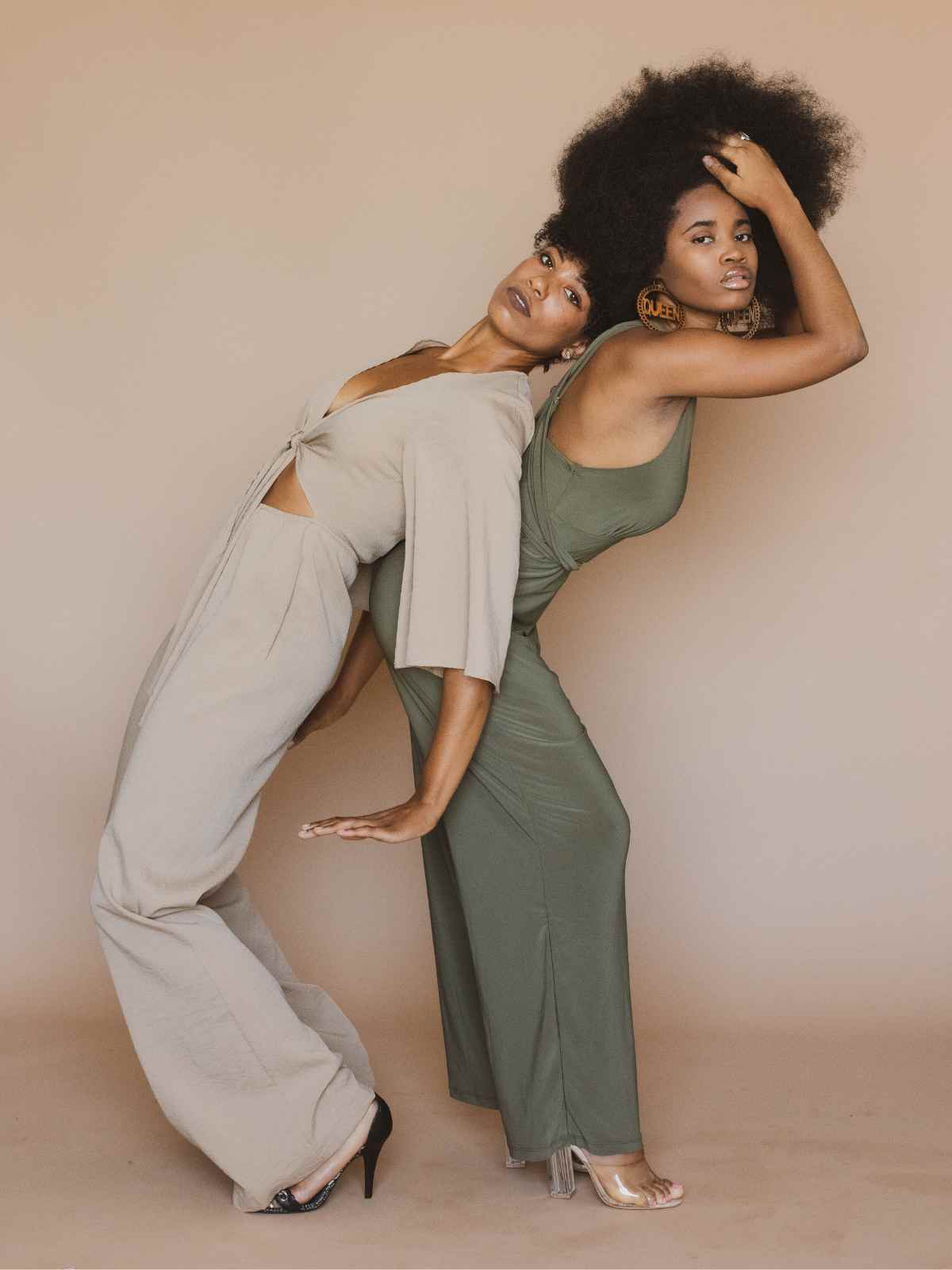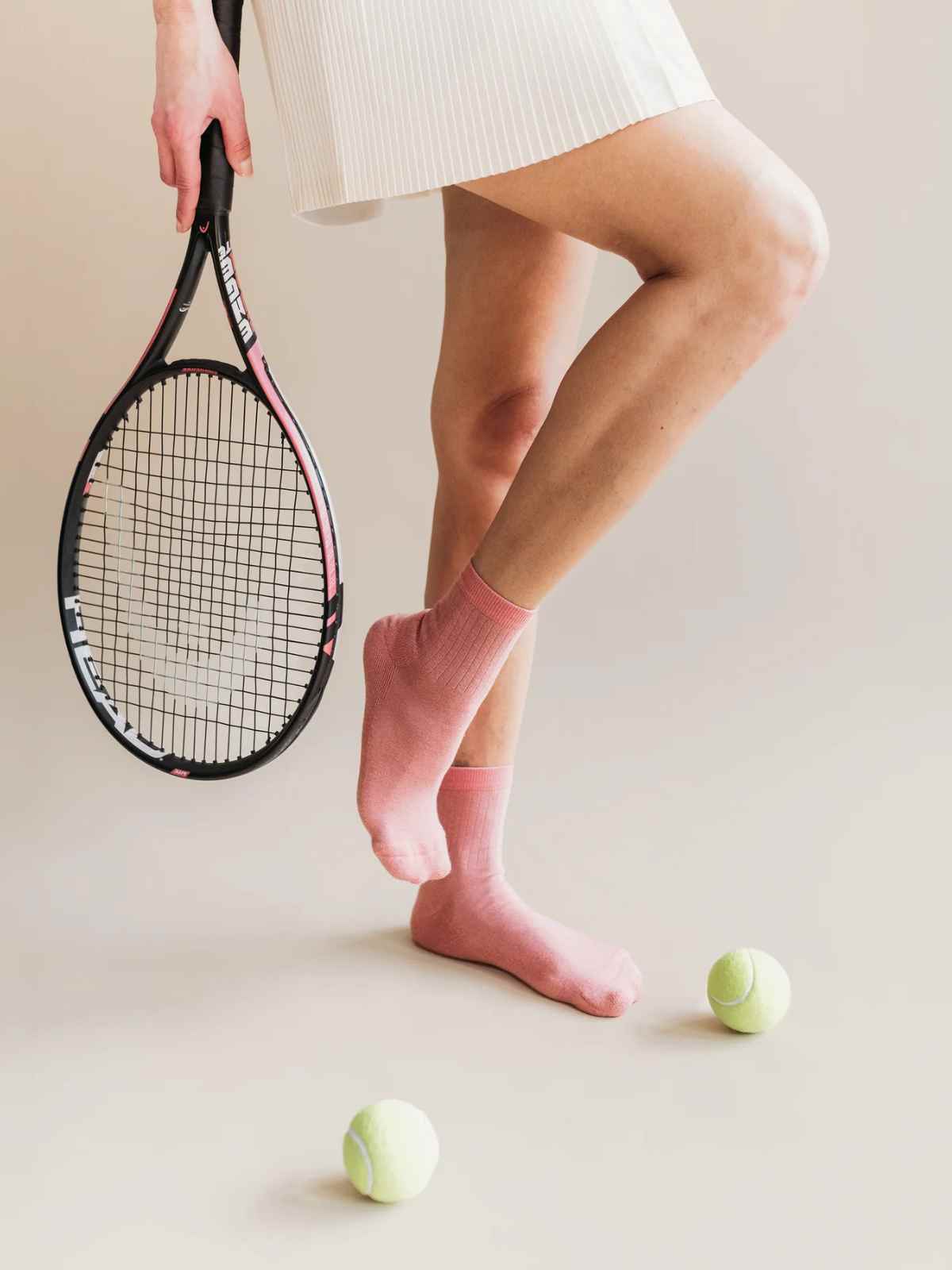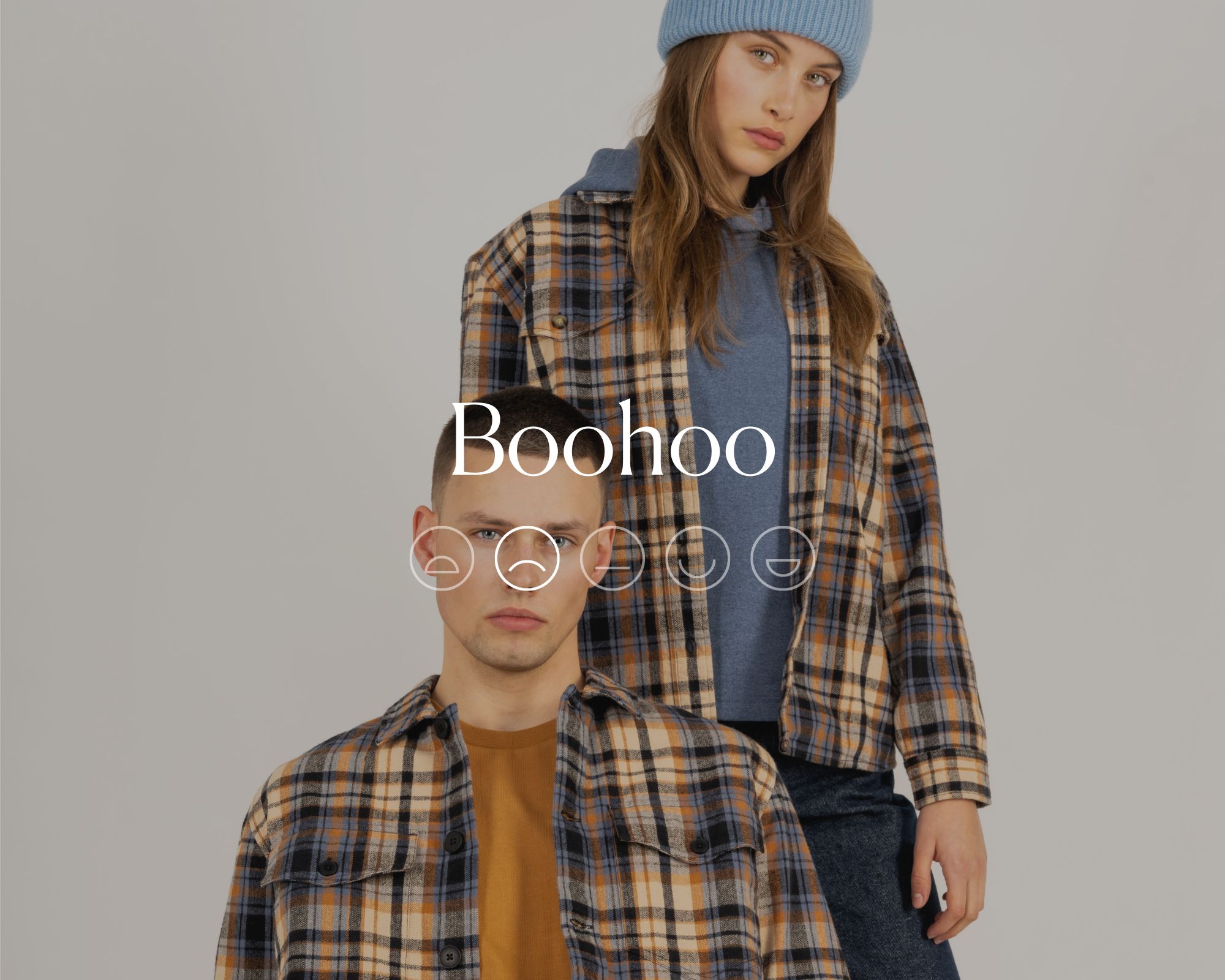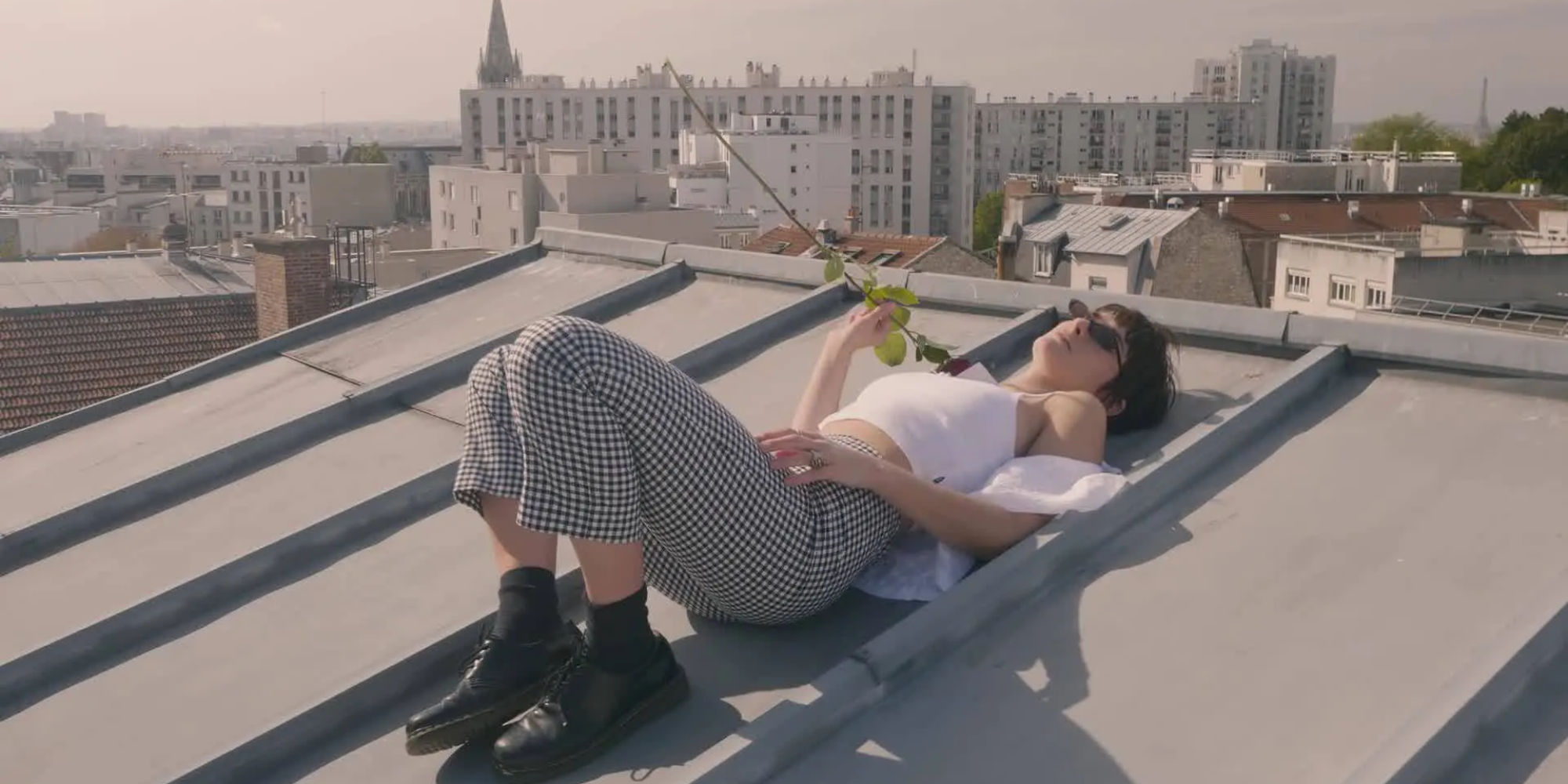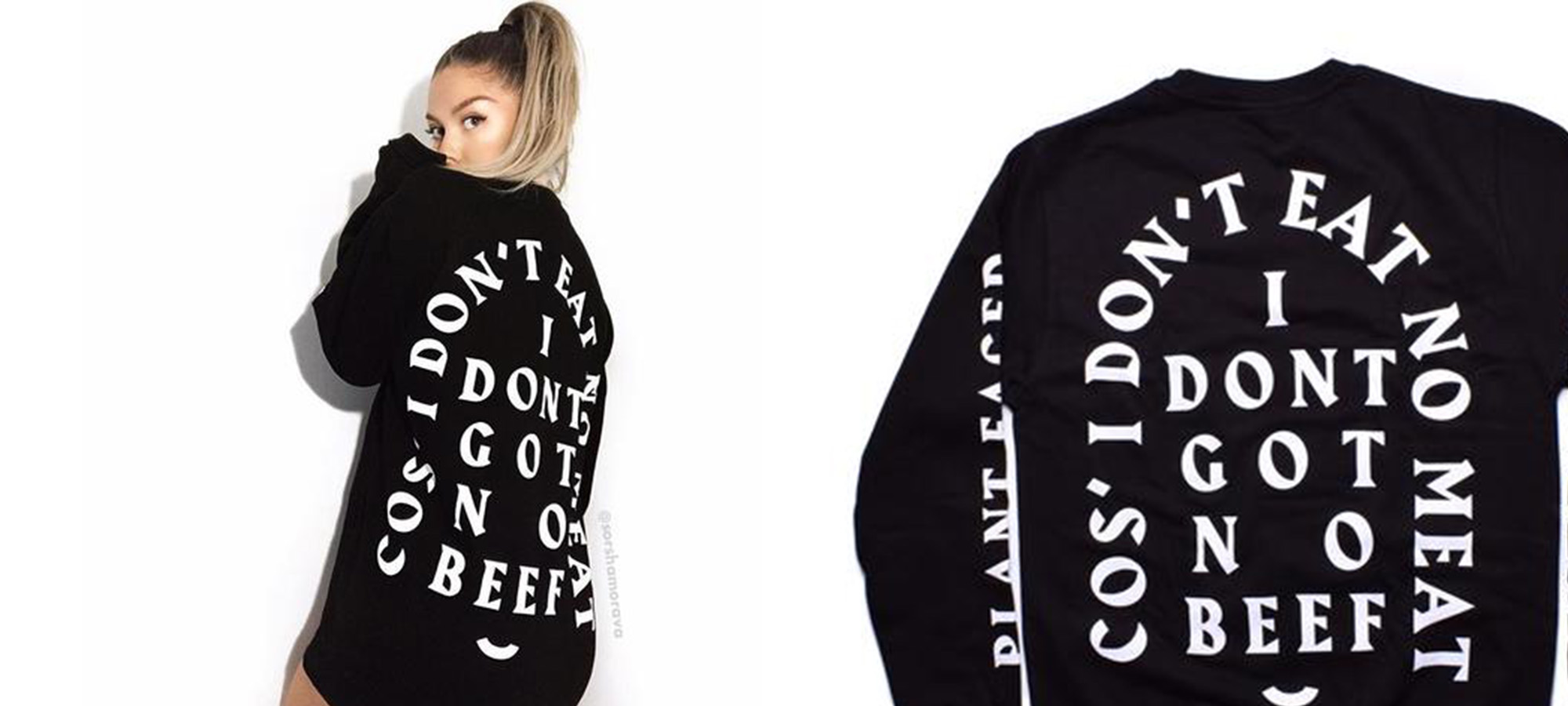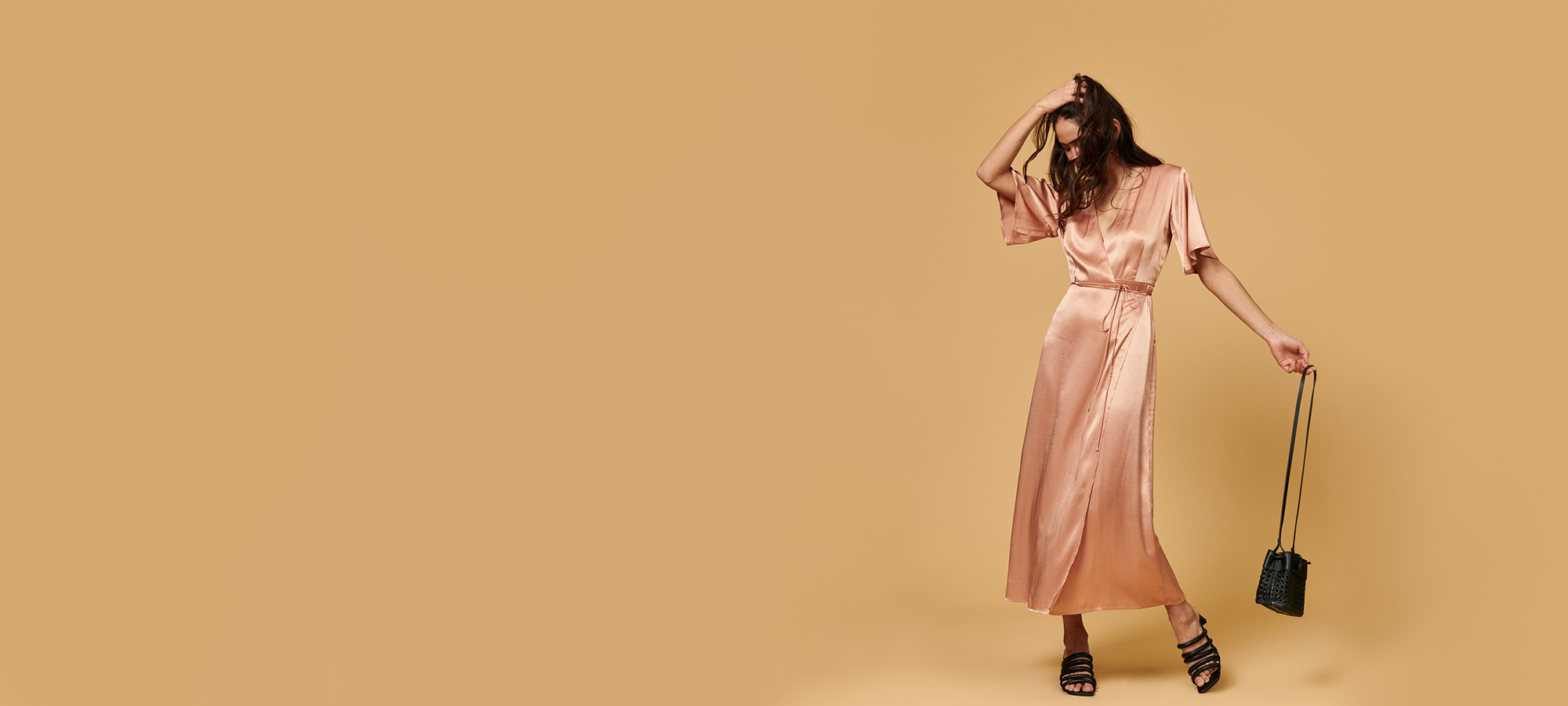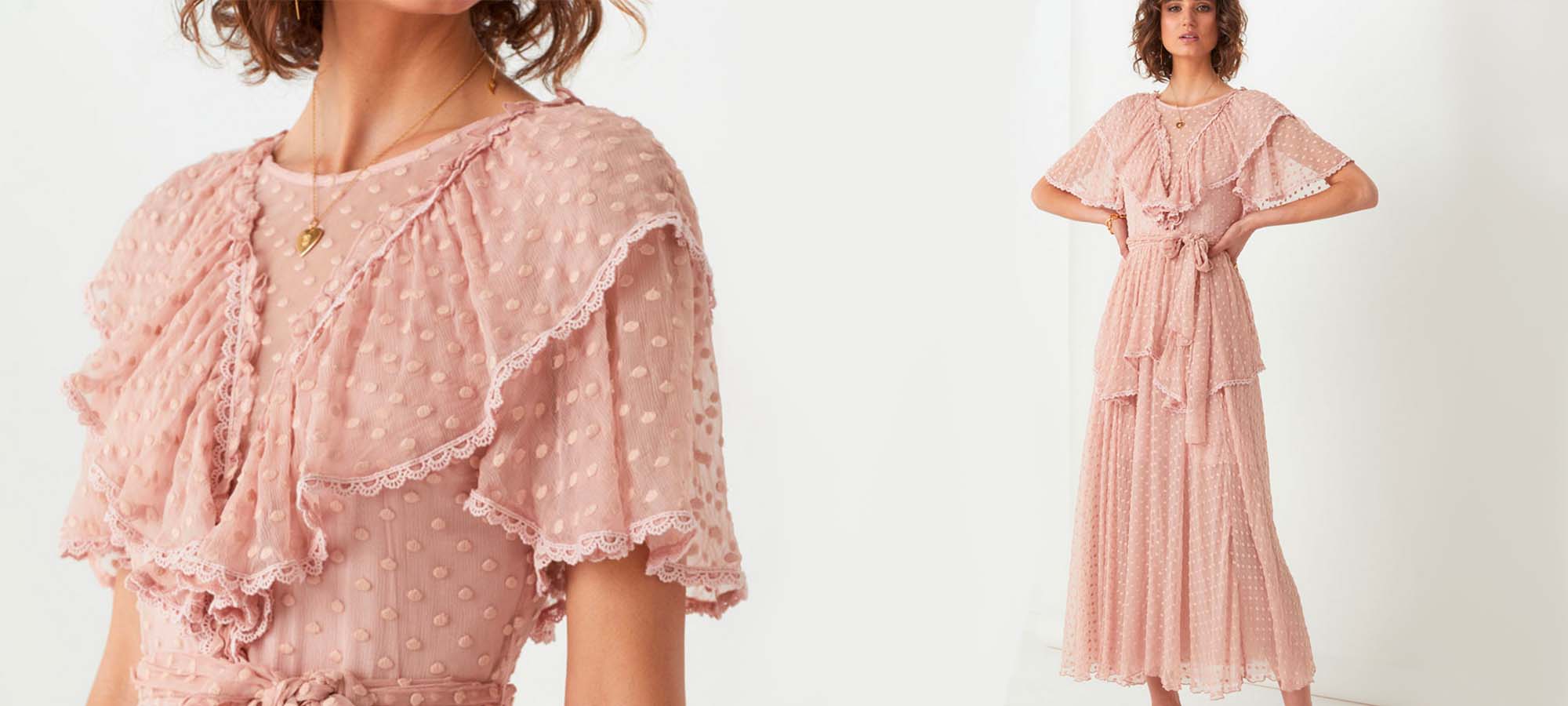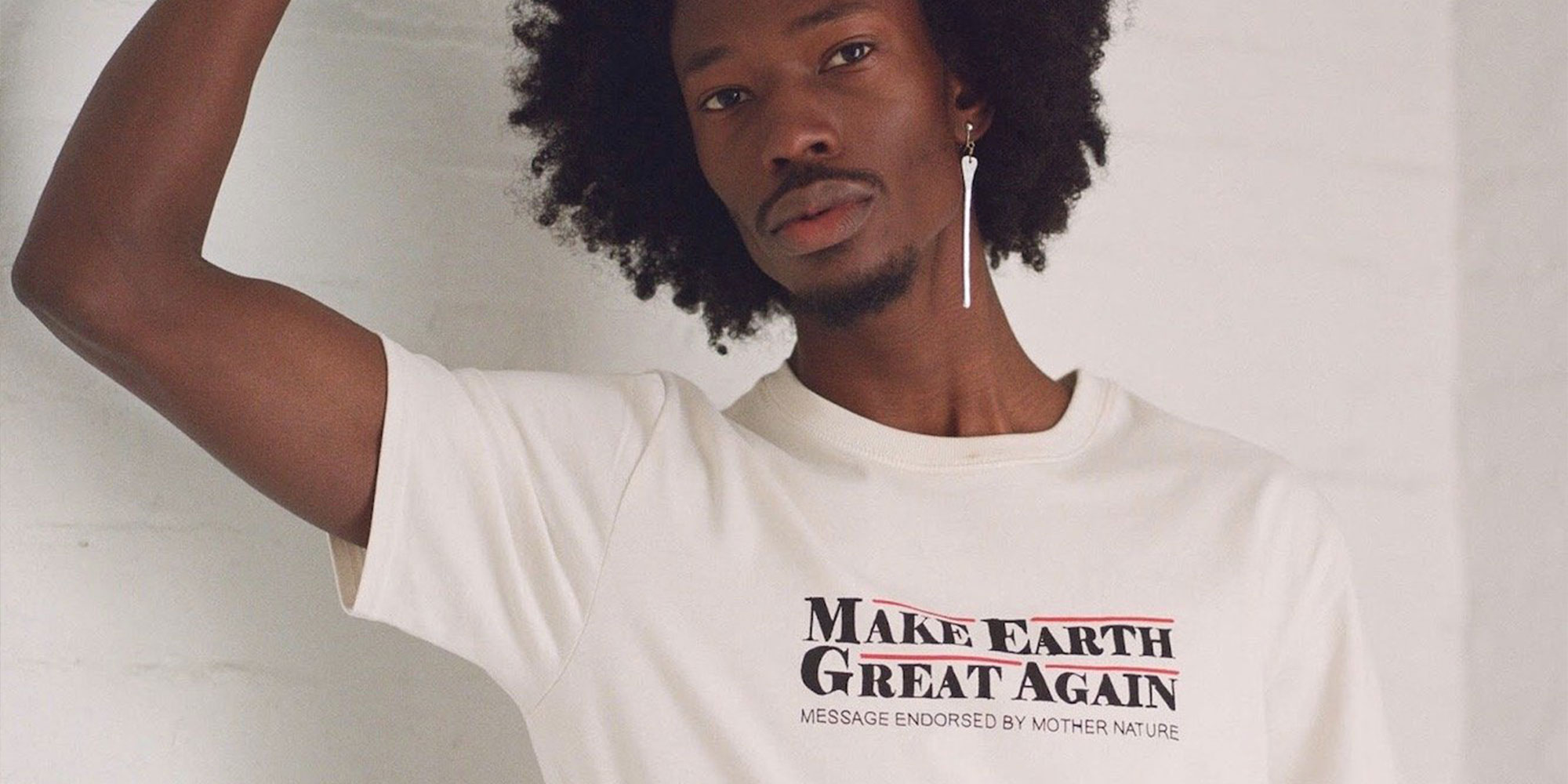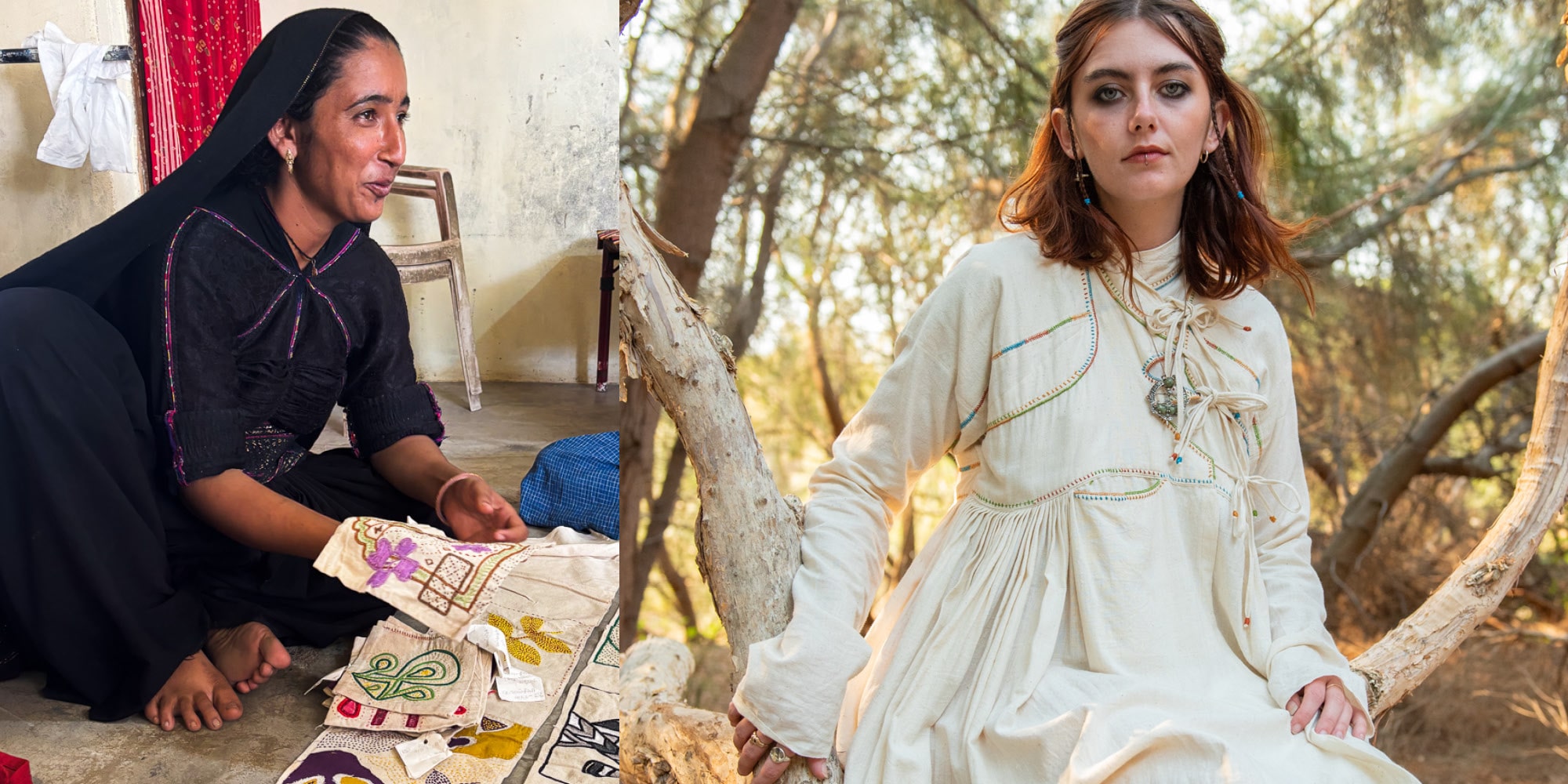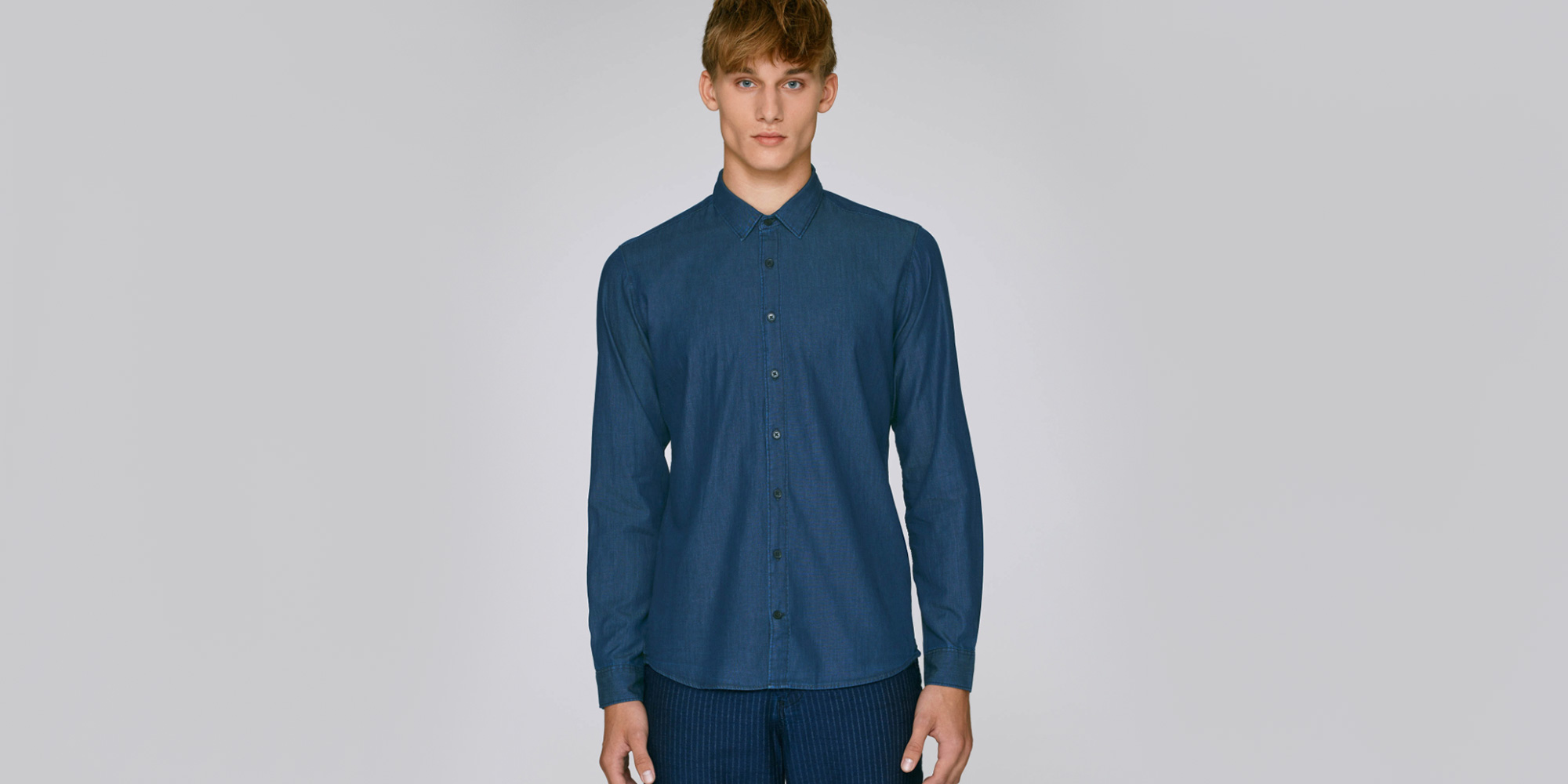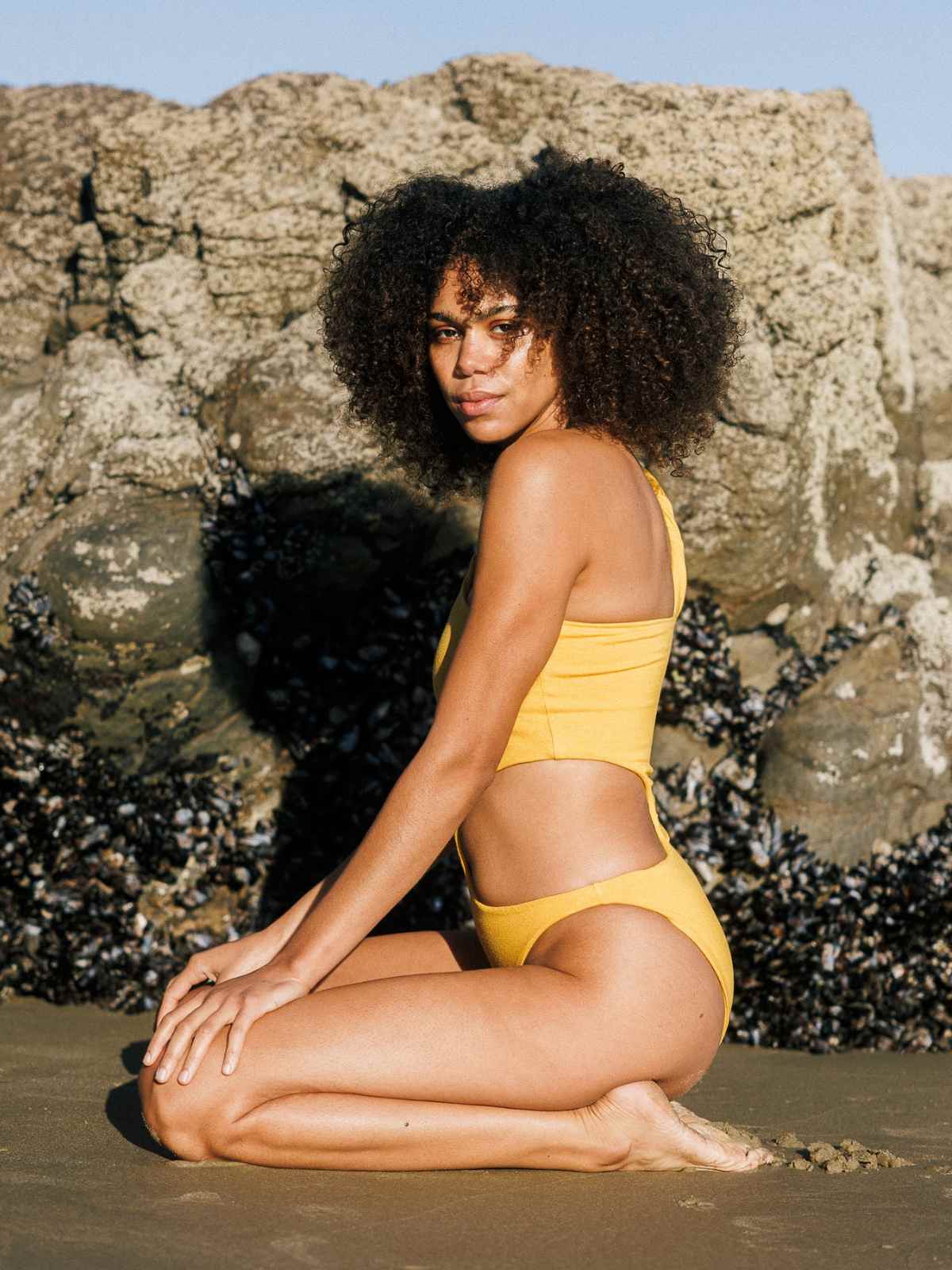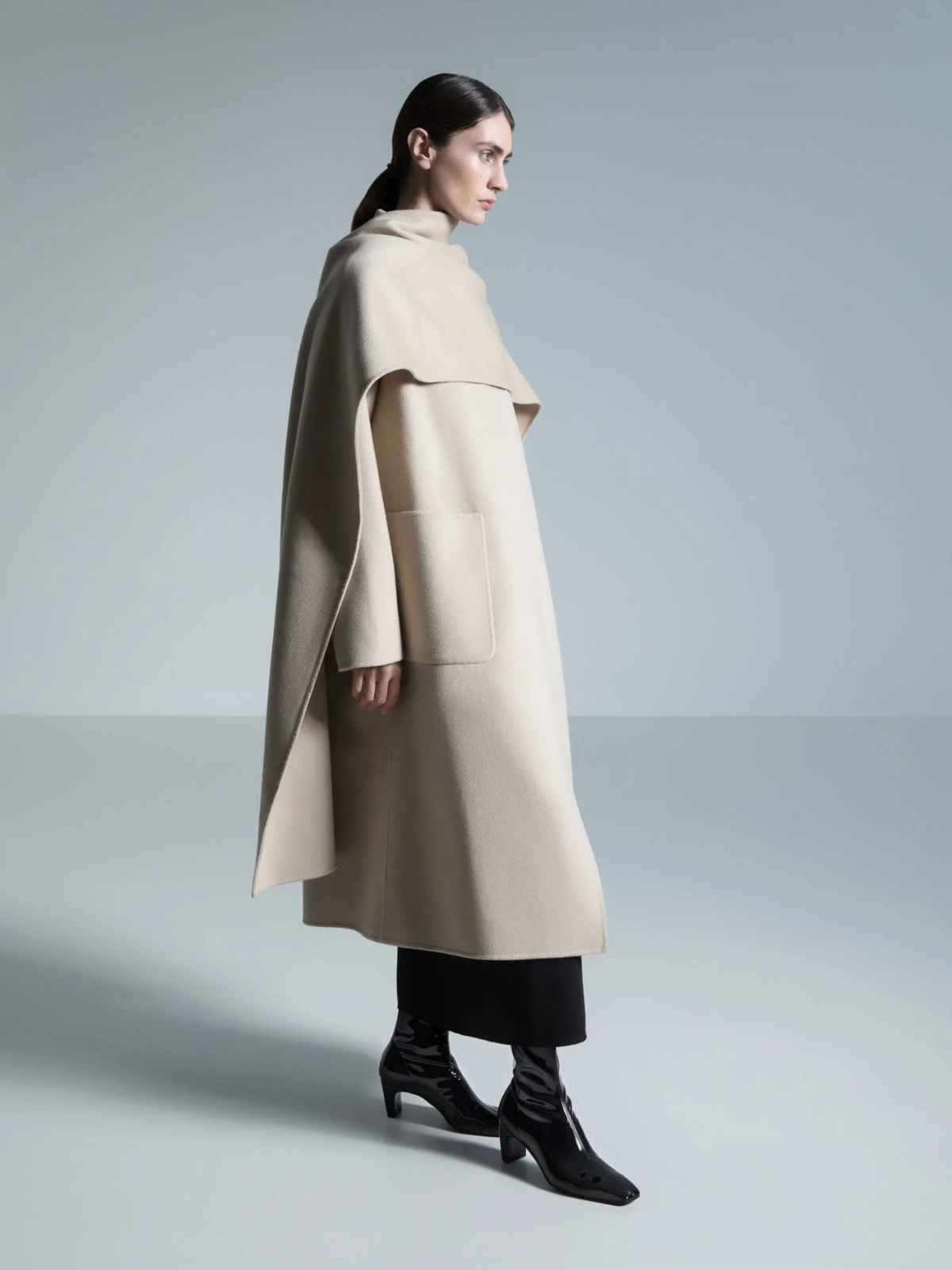Our editors curate highly rated brands that are first assessed by our rigorous ratings system. Buying through our links may earn us a commission—supporting the work we do. Learn more.
Boohoo has expanded rapidly since its launch in 2006. With such growth comes great responsibility, but is Boohoo taking that seriously and working responsibly? Here’s why the Boohoo is “Not Good Enough” for its sustainability.
This article is based on the Boohoo rating published in July 2024 and may not reflect claims the brand has made since then. Our ratings analysts are constantly rerating the thousands of brands you can check on our directory.
Boohoo needs to do better
Founded in Manchester in 2006, Boohoo has grown swiftly in the last 18 years to become one of the world’s foremost fast fashion brands. The brand purchased two of its competitors in 2017—PrettyLittleThing and Nasty Gal—and has since expanded its reach over the retail industry even further, buying up bankrupt British brands including Warehouse, Oasis, Karen Millen, and more.
But in 2019, Boohoo was named one of the least sustainable fashion brands in the UK in a report published by the Environmental Audit Committee (EAC). Then, in 2020, allegations emerged about worker exploitation by Boohoo suppliers in Leicester and Pakistan. And during the Coronavirus pandemic, as Boohoo’s sales soared 44%, factory workers were asked to work with “little to no” social distancing or personal protective equipment (PPE).
But its pandemic boom seems to have been short-lived, and more recently Boohoo has been struggling—in May 2024, The Telegraph reported that “losses have grown 76 per cent, more than 1,000 jobs have been cut, and shares are worth less than a tenth of their 2020 value.” To claw back some money, the retailer put its London office up for sale and announced cost-cutting measures, and we can’t help but wonder how those measures will impact Boohoo’s garment workers and suppliers.
With all this, it shouldn’t come as a surprise when we tell you Boohoo’s practices are negatively impacting the planet, people, and animals. In its 2023 sustainability report, the brand claims to be working towards a more sustainable future by “improving the volume of more sustainable materials, offering vintage and pre-loved items, improving the quality and longevity of our products, creating guidance on how to care for purchases, and offering different ways to purchase and responsibly part with pre-loved items.” So, let’s take a deeper dive into what this means and ask: how ethical is Boohoo?
Environmental impact
Boohoo’s environment rating has fallen to “Very Poor” in our most recent review.
It uses few lower-impact materials and there is no evidence it has taken meaningful action to reduce or eliminate hazardous chemicals. While it has set a science-based target to reduce greenhouse gas emissions generated from its own operations and supply chain, there is no evidence it is on track to meet its target. The brand also doesn’t appear to minimise textile waste when manufacturing its products—crucial for a brand pumping out so many styles so quickly.
Not only that, but Boohoo is a typical example of an ultra-fast fashion brand, designing and putting clothes on the market even faster than fast fashion brands do—sometimes in just under a week. Boohoo encourages a throwaway culture and makes consumers believe they need to shop more and more to stay on top of trends, creating a constant sense of need and ultimate dissatisfaction. This contributes to huge amounts of textile waste ending up in landfills as garments are discarded quicker than ever. In its 2023 sustainability report, the brand attempts to justify its ultra-fast fashion business model by claiming that it has a “unique test and repeat model [that] means that we only produce small amounts of product, we test it with customers and only produce what we have confidence will sell.” The report does note, however, that Boohoo is actively reducing the amount of new products added to its site each week by 35%, which is a start.
In a special 2024 edition of Fashion Revolution’s Global Transparency Report aimed at decarbonising fashion, Boohoo ranked at just 19% for disclosure of its efforts to decarbonise its operations. That said, the report noted that Boohoo is one of just seven brands out of 250 that disclosed efforts to financially compensate workers for the impact of the climate crisis, after it donated £100,000 to Kizilay, the Turkish Red Crescent Association, to support its work in helping those affected by the earthquakes in Turkey. The 2023 earthquakes adversely impacted garment workers in the region. A one-off donation to help workers is all well and good, but Boohoo’s rating for labour conditions is less than impressive.
Labour conditions
Boohoo is “Not Good Enough” for its labour practices and conditions. Time and time again, investigations have shown that Boohoo and its suppliers carry out exploitative practices that harm workers throughout the supply chain.
Despite profiting throughout the COVID-19 pandemic thanks to an increase in online shopping, Boohoo didn’t disclose any policies or safeguards to protect suppliers and workers in its supply chain from the impacts of the health crisis. And a report by Labour Behind the Label even detailed instances of garment makers who had tested positive for the virus being forced to continue working through their illness at a facility in Leicester.
In 2023, an undercover investigation by the BBC found that Boohoo’s practices still weren’t living up to the claims it made to improve through its Agenda for Change programme. There were unethical practices to drive down supplier payments, false country of origin claims in garment manufacturing, and forced overtime at its Leicester supplier—these issues are classic symptoms of the ultra-fast fashion business model.
Little of Boohoo’s supply chain is certified by labour standards that ensure worker health and safety or other labour rights, and there is no evidence the brand pays a living wage or implements practices to encourage diversity and inclusion. According to the Fashion Transparency Index 2023, Boohoo’s transparency was between 21-30%—remaining in the same bracket as its 2022 score.
Animal welfare
Boohoo’s animal welfare rating has improved to “It’s a Start”. Make no mistake, that doesn’t mean the brand is doing well for animals. There is still a lot of work to do here, and Boohoo’s 2023 sustainability report doesn’t mention animal welfare at all. But the brand has at least implemented a separate policy to minimise the suffering of animals—finally.
The policy aligns with the Five Freedoms of Animal Welfare (which is a bare minimum commitment), prohibits mulesed wool, and sets a few loosely worded targets for improving some of its animal-derived material sourcing by 2025. In the past, Boohoo has been criticised for selling faux fur that contained real animal hair (an issue it blamed on a supplier), and its policy somewhat addresses the issue by promising to destroy any products found to contain real hair. And although it doesn’t use fur, angora, or exotic animal skin, it still uses leather, down, exotic animal hair, and wool, and it doesn’t trace any animal products even to the first stage of production.
Overall rating: Not Good Enough
Boohoo’s overall rating remained the same in our most recent review because although it has made small progress in one area, it has fallen behind in others. The brand is still very opaque about policies and its environmental, animal welfare and labour impacts.
The retailer could improve by continuing to disclose more detailed information about its practices so that consumers and the industry can hold it accountable. It should also regularly report on the targets it has made that were approved by the Science-Based Targets initiative and maintain fair relationships and purchasing practices with its suppliers around the world. But even with all that, the fact remains that Boohoo is an ultra-fast fashion brand, and this business model can never truly be sustainable. To really change things, the brand must also commit to circularity, drastically reduce its output, and stop using animal-derived products altogether.
Boohoo’s poor practices might finally be catching up with it, though—in a recent comment to Business of Fashion, Guy Lawson-Johns, an equity analyst at Hargreaves Lansdown, described the brand as “a struggling company with a tarnished reputation, reflected in the group’s [stock market] valuation, which has come down significantly over the last few years.” Whether the brand can turn things around remains to be seen.
The Good On You team has a few “Good” and “Great” alternatives to Boohoo.
Good swaps
More ethical and sustainable alternatives to Boohoo

